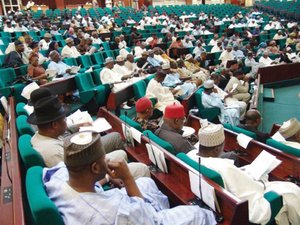As resource control bill resurfaces at the national assembly, some Nigerians receive it with surprise and expectation while some with outright disdain. But overall it has generated a lot of interest. The agitation for resource control has created contentious debate in the past that South South delegates had to a walk out when it was discussed at the national confab.
It has also created occasion for the government to label those pushing for control of resources in their domain as traitors. Those in the forefront of the demand are mainly from the Niger Delta mainly because of oil.
The principle of derivation as encapsulated under the proviso to Section 162 (2) of the 1999 Constitution as amended is 13percent which the oil producing states have vehemently argued against canvassing for 50percent.
Agitation for resource control by the oil producing states came under strong criticism, particularly from the non-oil producing states in the North and South West, who accused them of having access to wealth at the expense of others.
The oil producing states were accused of attempting to undermine the structure of the Nigerian state that commentators like Professor G.G Darah also from Niger Delta argued that it was wrong to think that an intensification of the debate will threaten the corporate existence Of Nigeria.
Oronto Douglas, a representative of the South South at the confab from Bayelsa state once said “if the Confab and Nigerians are not willing to heed to resource control, the Deltans will take it by force”.
Atoyebi Kehinde, Adekunjo Felix, kadiri Kayode Ibrahim, all from Lagos state university said what the Niger Delta people wanted was a fair share from the oil wealth in terms of modern development rather than sitting atop of oil fields with little benefit for their suffering.
Also, Director, City of London based international financial services search, John Iyobhebhe said that derivation and resource control has always been an emotional and vexed political issue in Nigeria since independence.
“In today’s terms, the debate centres on how the multi billion dollars oil revenue should be apportioned between the oil producing states and the federal government in Abuja,” he affirmed.
Priye S. Torulagha, a public commentator said the issue of resource control has so much to do with the failure of leadership in the country.
“Successive Nigerian leaders ignored or failed to resolve substantive national issues. Each time they were confronted with a serious political issue, they would push it aside or threaten to use force to stop the matter from being discussed or resolved amicably,” he said.
A bill for an Act seeking to grant states in the country control over minerals resources within their domain has passed second reading in the House of Representatives.
The bill which is sponsored by the minority leader, Hon. Leo Ogor seeks to vest the control of revenues derived from mineral resources on the states where they are found.
It has as its long title: “A Bill for an Act to alter the Constitution of the Federal Republic of Nigeria, 1999, to vest the control of the revenues derived from minerals, mineral oils, natural gas in, under or upon any land in the states of the federation and for other related matters.”
Ogor, in his lead debate, said the bill if passed into law will give impetus to the quest by the government to diversify its economy, as states will focus on areas where they have a comparative advantage.
He noted every state in the country is endowed with one natural resource or the other, noting that if these resources are well harnessed, it will make the states less dependent on the federal allocations.
The minority leader added that if the bill is passed into law, it will help the country function better as a federal state.
“We are confronted with a situation where states go cap in hand every month to Abuja for federal allocation. When states take up resources in their areas, it will lead to specialisation. The exclusive legislative list is overcrowded,” Ogor said.
In his contribution, the member representing Sagbama/Ekeremor federal constituency of Bayelsa state, Hon. Fredrick Agbedi observed that the bill was long overdue. He opined that if it is passed into law, it would help to enhance the economy of the country and the pull the nation out of recession.
“We need to take practical steps to see that w end this recession. We will not be able to end the recession if states continue to come to Abuja to collect money”, he said.
The member representing Fufore/Song federal constituency of Adamawa state, Hon. Sadiq Ibrahim raised a point of order. Citing order 13(3), he said in line with the rule of the House, the matter ought to be debated until it has scaled through in the constitution amendment committee.
The speaker, Hon Yakubu Dogara, who presided Thursday’s plenary agreed with him; “I think Sadiq is right, we may just be wasting our time if it does not scale through in the constitution amendment committee.”
The bill was however referred to Special Ad-hoc Committee on the Review of the 1999 constitution after it narrowly scaled through in a voice vote.

